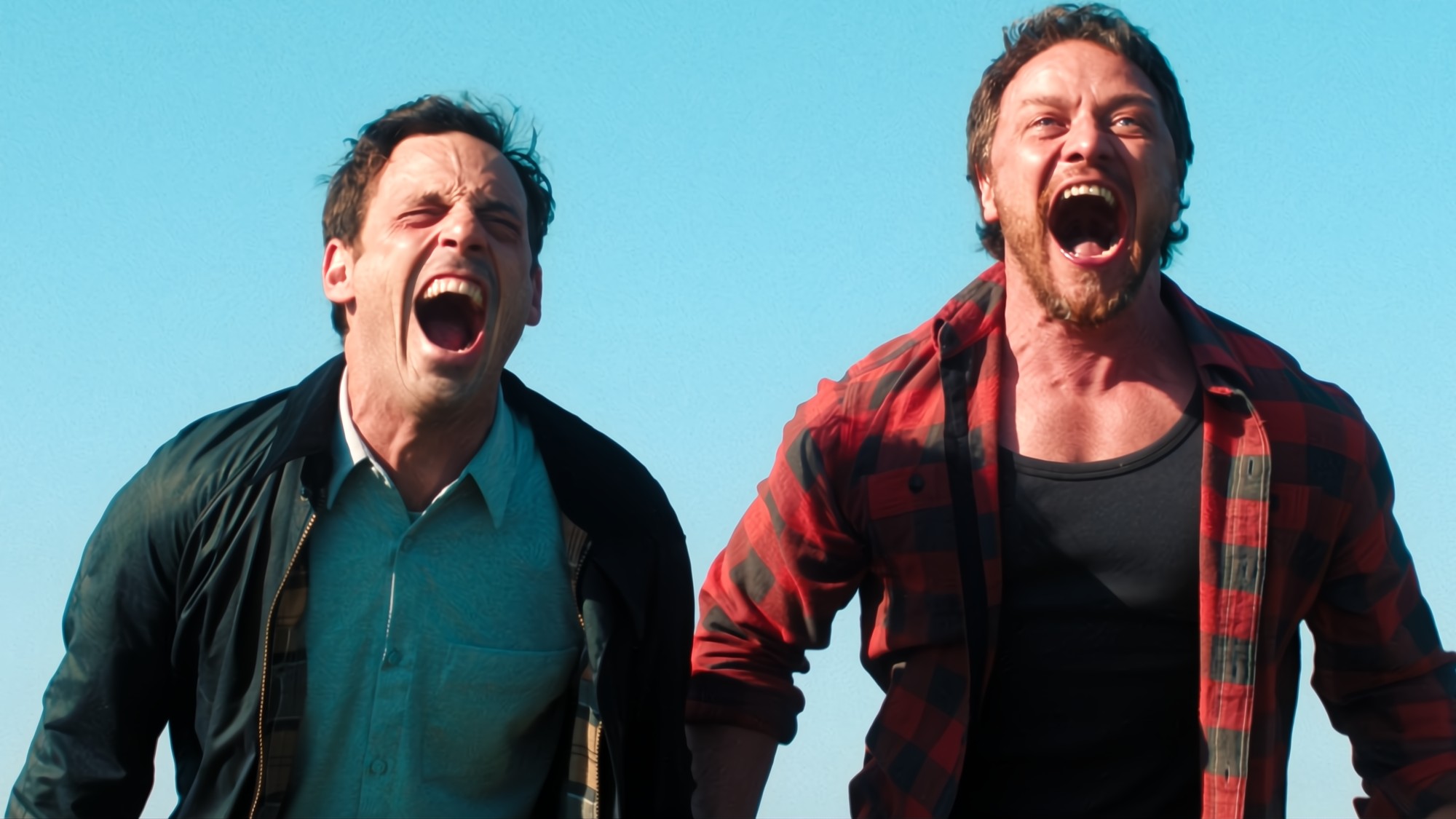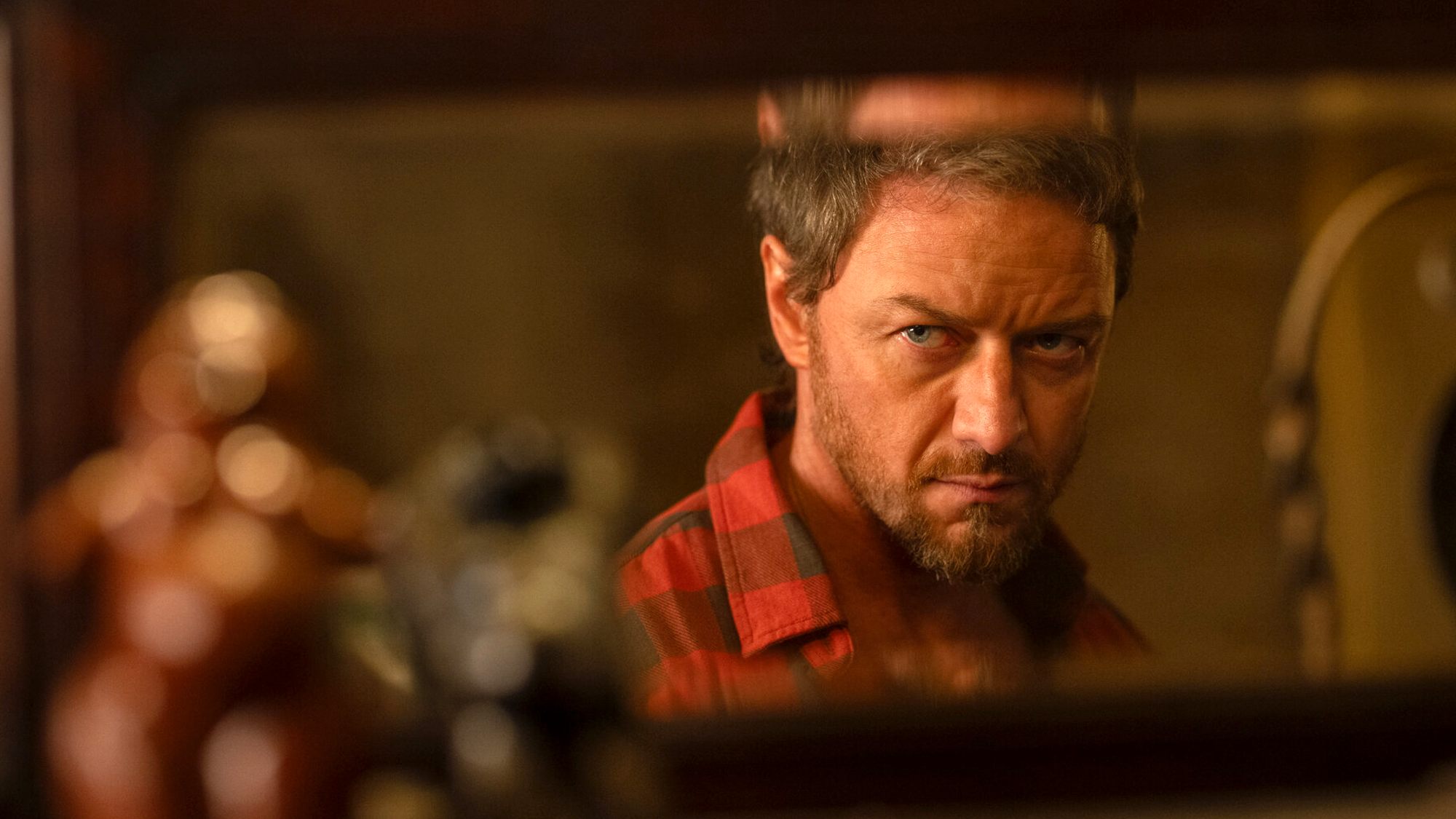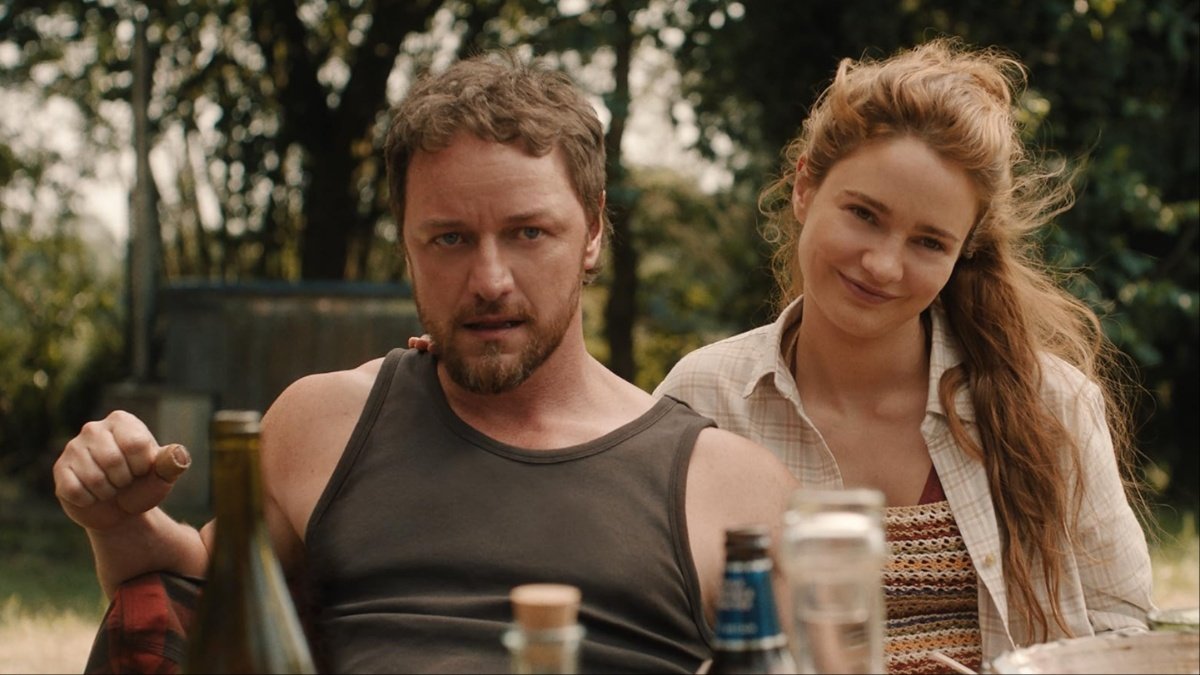
There’s nothing like a little homicide to bring a family together. For fans of the original 2022 Danish movie “Speak No Evil,” the premise of the 2024 iteration will seem pretty familiar: A couple and their daughter stay at the cabin of a couple they met on vacation only to find that they’re harboring quite a secret. It’s a little difficult to share said secret without a tongue — hence the title.
The movie centers on two families. On one side, we have the Daltons: Louise (Mackenzie Davis), Ben (Scoot McNairy) and Agnes (Alix West Lefler). On the other stands Paddy (James McAvoy), Ciara (Aisling Franciosi) and Ant (Dan Hough).
The James Watkins-directed movie taps into multiple genre vibes, creating a hybrid-feeling thriller. It has the psychological family components that made “The Shining,” well, shine. Yet “Speak No Evil” also plays into the chaotic live-fast-die-young couple shenanigans you’d expect in a Bonnie and Clyde-centric movie. And then, of course, we have the cabin in the woods setting that lends itself to the people-hunting “The Most Dangerous Game” energy featuring a dose of irony and calling out hypocrisy in the most homicidal way possible.
The 2024 adaptation is much less brutal than its predecessor
While the main plots of both films are consistent, the American version takes a number of liberties that cement it more in psychological territory than the depraved brutality we saw in the original. Part of the original’s appeal is the shock value. Sure, the remake hits plenty of those notes, but it still avoids the jaw-dropping twists of OG. However, that’s not necessarily a bad thing.
I’ve always said that unless you have something new to say in a remake, don’t say it all. There’s no point in making a frame-by-frame carbon copy of something that already exists. If someone wants to witness the 2022 movie’s direction, they can turn on the subtitles and watch that version. McAvoy’s movie stands on its own and leans more into the family dynamics that are the heartbeat of the film rather than the violence (which of course is still present). Both iterations have their merits, but they’re meant to be different — and that’s OK.
James McAvoy gets to tap into unhinged characterization
Some of the most fascinating characters in film have dual personalities, particularly when it comes to villains. The most compelling Bad Guys are the ones who, at times, almost make you forget that you’re supposed to hate them.
As aggressive as McAvoy’s character is, the chaotic brand of charm that he slips into some of his more comedic scenes is infectious. Yet when you think about it, each of Paddy’s fun quirky moments still comes from a place of messing with someone else’s head, even if it seems good-natured.

One minute, Paddy is getting rid of a couple with a long-winded convo on toilet paper preferences, and the next, he’s forcing a vegetarian to eat his pet goose. Though “Speak No Evil” has six core characters, the film is more or less a character study on McAvoy’s Paddy, and it really allows the actor to dive into his range as an actor.
Mackenzie Davis’ role as badass mom Louise also stands out. She both wears the heart and pants in the family while still being a flawed and dynamic character. Louise is also basically an extension of the audience with her rationality and insistence that they get the hell out of dodge immediately. Both actors switch off giving audiences the funniest movie moments.
There’s a surprising amount of political commentary
One component of the film you might not expect going into it is the political commentary. As a vegetarian, I loved seeing Louise’s vegetarianism explored in the film. It was the launching point for conversations about humanity’s impact on the planet, the usefulness of activism, and the concept of performative, self-serving morality complexes.
Given the grim reality of factory farming and its impact on the environment, I’ll have to side with Louise on that particular subject. Moreover, if someone tried to force-feed me their pet-turned-dinner knowing full well I was a vegetarian, I would spit it back in their face.

Yet Paddy does have a point that a good chunk of good deeds come from a place of people wanting to pat themselves on the back for a job well done. We see this all the time with people filming their random acts of kindness or making donations simply for tax breaks and gold stars. Of course, we can have those nuanced conversations without using it as an excuse to get all homicidal, but tell that to Paddy. His snarky comment about being shocked that an American doesn’t like guns might just be the best one-liner in the movie.
Additionally, the altered plot direction of the 2024 “Speak No Evil” really allows the movie to tap into the concept of abuse cycles and the difficulty in breaking them. The film’s realistic family dynamics are not only relatable but refreshing. Despite their imperfections, we root for the Daltons anyway, making their fight for survival all the more enriching.
'Speak No Evil' is a worthy watch — but a little long
PSA to Hollywood: Not every movie needs to be over two hours. There’s a lot to love about “Speak No Evil,” but the slow-burn beginning of the movie is way too long. Thrillers are constantly making the mistake of throwing ten tons of fluff at audiences in the opening sequences — between mundane domesticity and long-winded intros to the plot. “Speak No Evil” is guilty of this mistake that might make the movie hard for fans to get into at first, especially in a streaming capacity rather than a theater where you’re forced to pay attention.
It always feels like the most exciting scenes in artsy thrillers are in part sacrificed to prolonged intro sequences. With such visceral source material, it’s a letdown that the do-or-die action moments aren’t as highlighted as they could be. “Speak No Evil” could stand to lose up to a half hour of screen time, or, alternatively, chop down some of the banal intro and funnel that time back into the ending.
That being said, the final scenes are still effective and gripping. But more importantly, you leave the film pondering some of the big existential questions that make psychological horror films so compelling.







